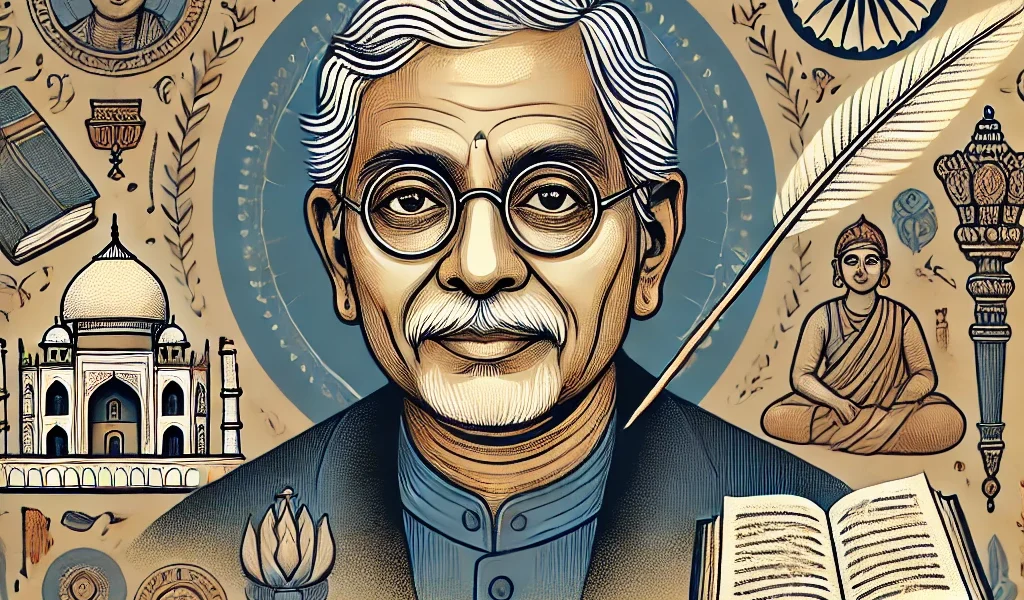- Homepage
- Lifestyle Vibes
- Who is the First English Language Writer to Win the Jnanpith Award?
Who is the First English Language Writer to Win the Jnanpith Award?
The Jnanpith Award is one of India’s highest literary honors, awarded annually to an author for their outstanding contribution to literature. Established in 1961 by the Bharatiya Jnanpith Trust, this prestigious award recognizes the lifetime achievements of authors in Indian languages, including English. While most recipients have written in regional Indian languages, the award expanded to include writers in English in 2019, when Amitav Ghosh became the first English-language author to receive the Jnanpith Award.
In this article, we will explore who Amitav Ghosh is, his literary achievements, and why his selection as the first English-language recipient of the Jnanpith Award is significant.
Who is Amitav Ghosh?
Amitav Ghosh is one of the most celebrated contemporary Indian authors, known for his novels that blend history, politics, culture, and personal narratives. Born on July 11, 1956, in Calcutta (now Kolkata), Ghosh’s education took him to various parts of the world. He studied at Delhi University, St. Edmund Hall, Oxford, and received a doctorate in social anthropology.
Ghosh’s work is recognized for its exploration of colonialism, migration, climate change, and the human condition. His writing spans multiple genres, and his novels often have a strong historical basis, blending fictional characters with real-world events.
Notable Works of Amitav Ghosh
- The Shadow Lines (1988): A landmark novel in Ghosh’s career, this work explores the concepts of borders, identity, and nationalism. It weaves together personal and political narratives spanning from pre-independence India to post-partition Pakistan.
- The Glass Palace (2000): A historical novel set in Burma, India, and Malaysia, The Glass Palace examines the impact of colonialism in Southeast Asia. It is a richly detailed exploration of history, culture, and the lasting consequences of British imperialism.
- The Ibis Trilogy:
- Sea of Poppies (2008): This Booker Prize-shortlisted novel is the first in Ghosh’s Ibis Trilogy. It centers around the opium trade between India and China in the 19th century and tells the stories of a diverse group of individuals aboard the Ibis ship.
- River of Smoke (2011): The second installment continues the exploration of the opium trade, focusing on Canton (now Guangzhou) during the First Opium War.
- Flood of Fire (2015): The final book of the trilogy concludes the story of the opium wars and examines how colonialism reshaped the lives of its characters.
- Gun Island (2019): A more recent work, Gun Island focuses on themes of climate change and migration, blending myth and contemporary realities.
Literary Style and Themes
Amitav Ghosh’s writing is known for its rich, multi-layered narratives and detailed research. He delves into historical periods with precision, often highlighting the connections between global events and individual experiences. His works are marked by an emphasis on colonial and post-colonial themes, migration, and environmental concerns, especially the global impact of climate change.
In addition to his novels, Ghosh has written essays and non-fiction works on similar themes, further showcasing his versatility as a writer.
Winning the Jnanpith Award: Significance
When Amitav Ghosh was announced as the 55th Jnanpith Award winner in 2019, it marked a historic moment for both Indian literature and English-language writing in India. Ghosh’s selection as the first English-language recipient of the Jnanpith Award highlighted the increasing recognition of Indian authors who write in English and the global reach of Indian literature.
Why Ghosh Was Chosen
The Jnanpith Award jury praised Ghosh for his “outstanding contribution to literature” and his ability to delve into both historical and contemporary issues with a nuanced, global perspective. His works not only explore the complexities of colonialism and migration but also tackle modern challenges like climate change, making his writings relevant across time periods and geographic boundaries.
The award acknowledged Ghosh’s unique ability to weave together multiple cultures, histories, and narratives, helping readers better understand the connections between India’s past and its present place in the world.
The Impact of Ghosh’s Win on English-Language Writing in India
Amitav Ghosh’s win was a pivotal moment for Indian authors writing in English. While English-language literature in India has always had a strong following, regional languages like Hindi, Bengali, and Kannada had dominated the Jnanpith Award for decades. Ghosh’s win represented the expanding horizons of Indian literature, emphasizing the importance of both regional and global narratives.
Ghosh’s victory also underscored the contribution of Indian authors writing in English to world literature. As globalization continues to blur cultural and linguistic borders, the recognition of English-language works by an Indian author in a traditionally region-focused literary award reflected a broadening definition of what constitutes Indian literature.
Conclusion
Amitav Ghosh’s recognition as the first English-language author to win the Jnanpith Award in 2019 was a milestone in Indian literary history. His exploration of complex themes such as colonialism, migration, and environmental change has resonated with readers around the globe, making his contributions to literature significant and far-reaching.
As one of India’s leading literary figures, Ghosh’s win has paved the way for future generations of Indian writers in English to gain recognition and continue pushing the boundaries of storytelling.




